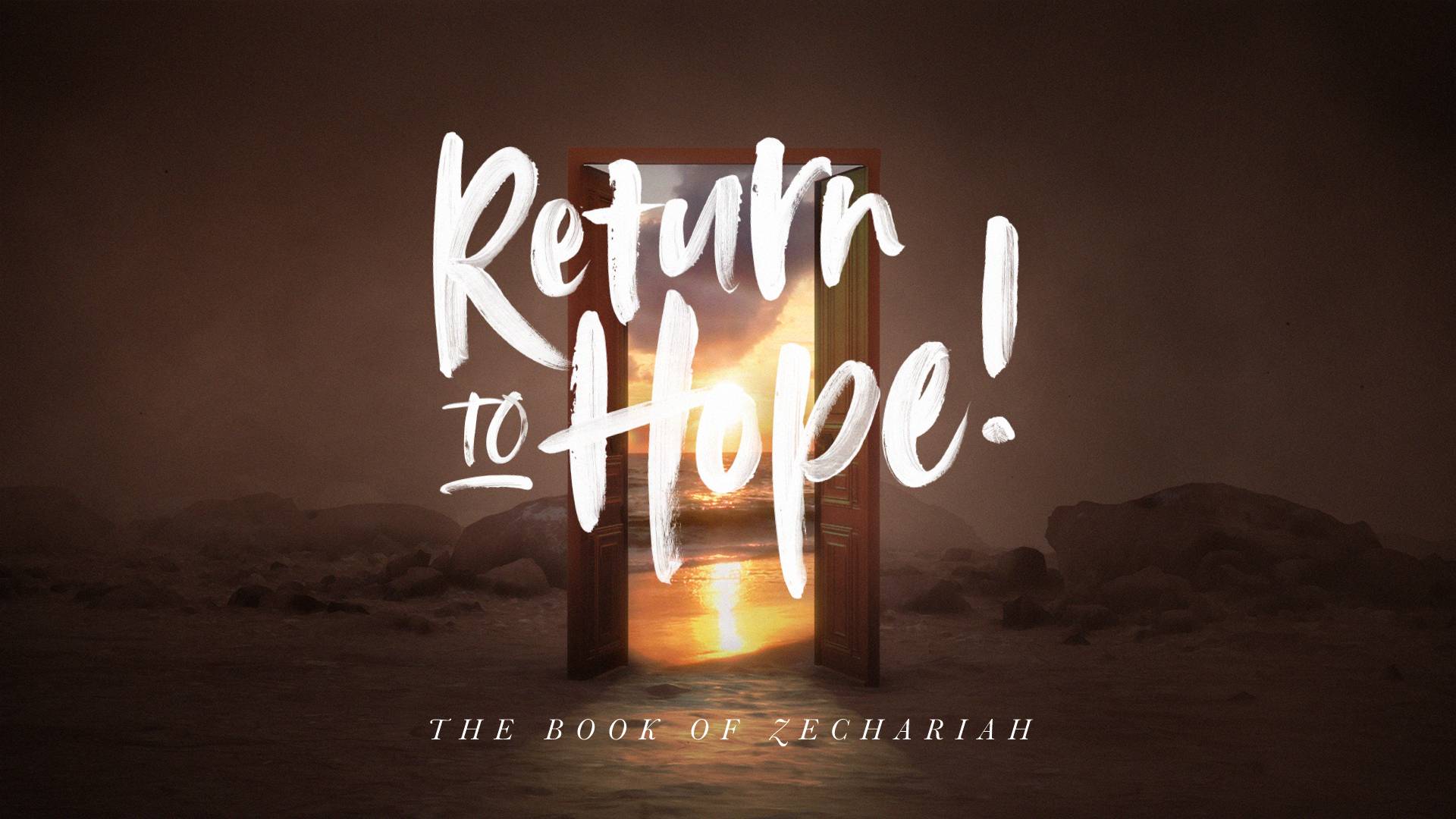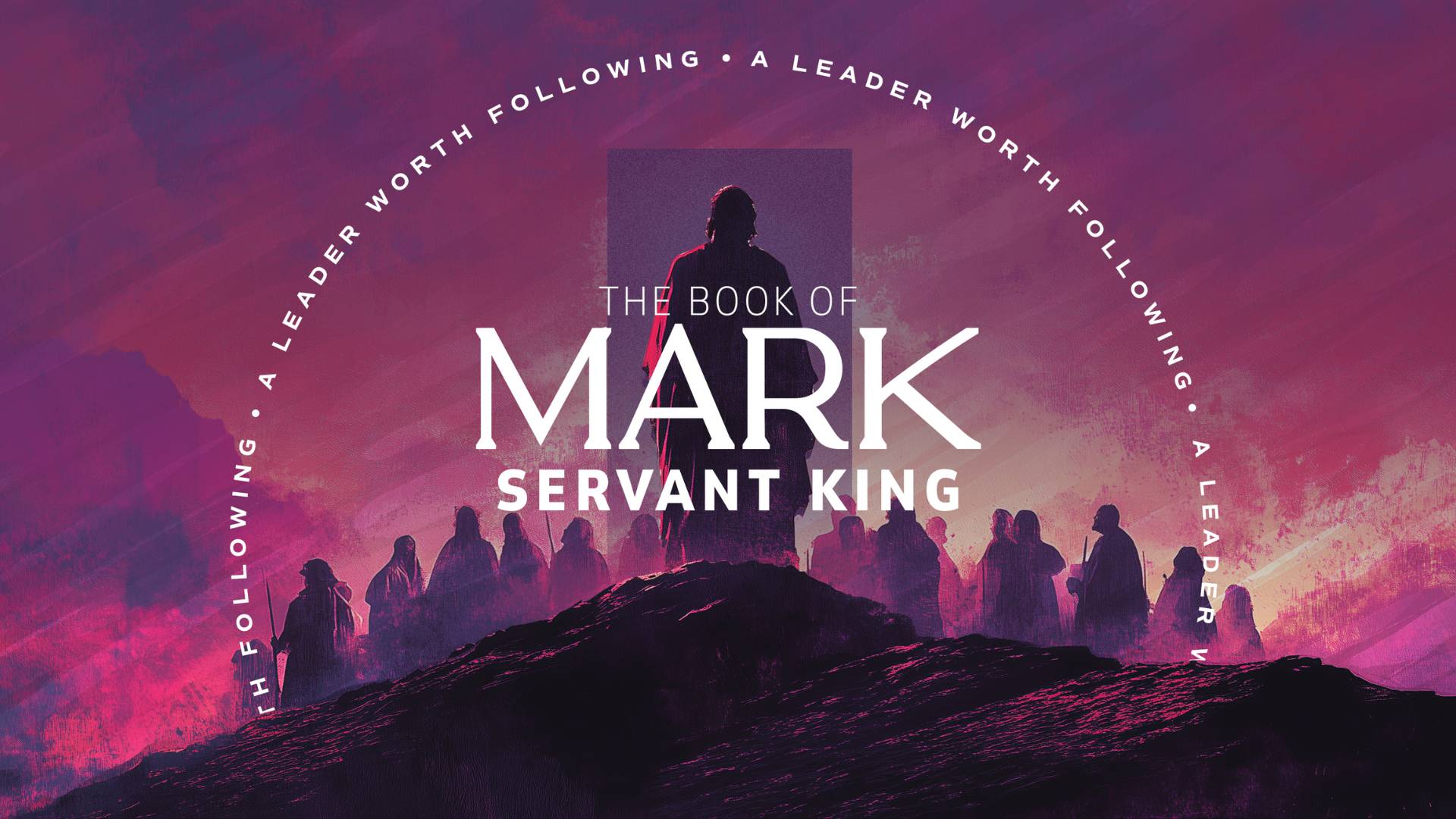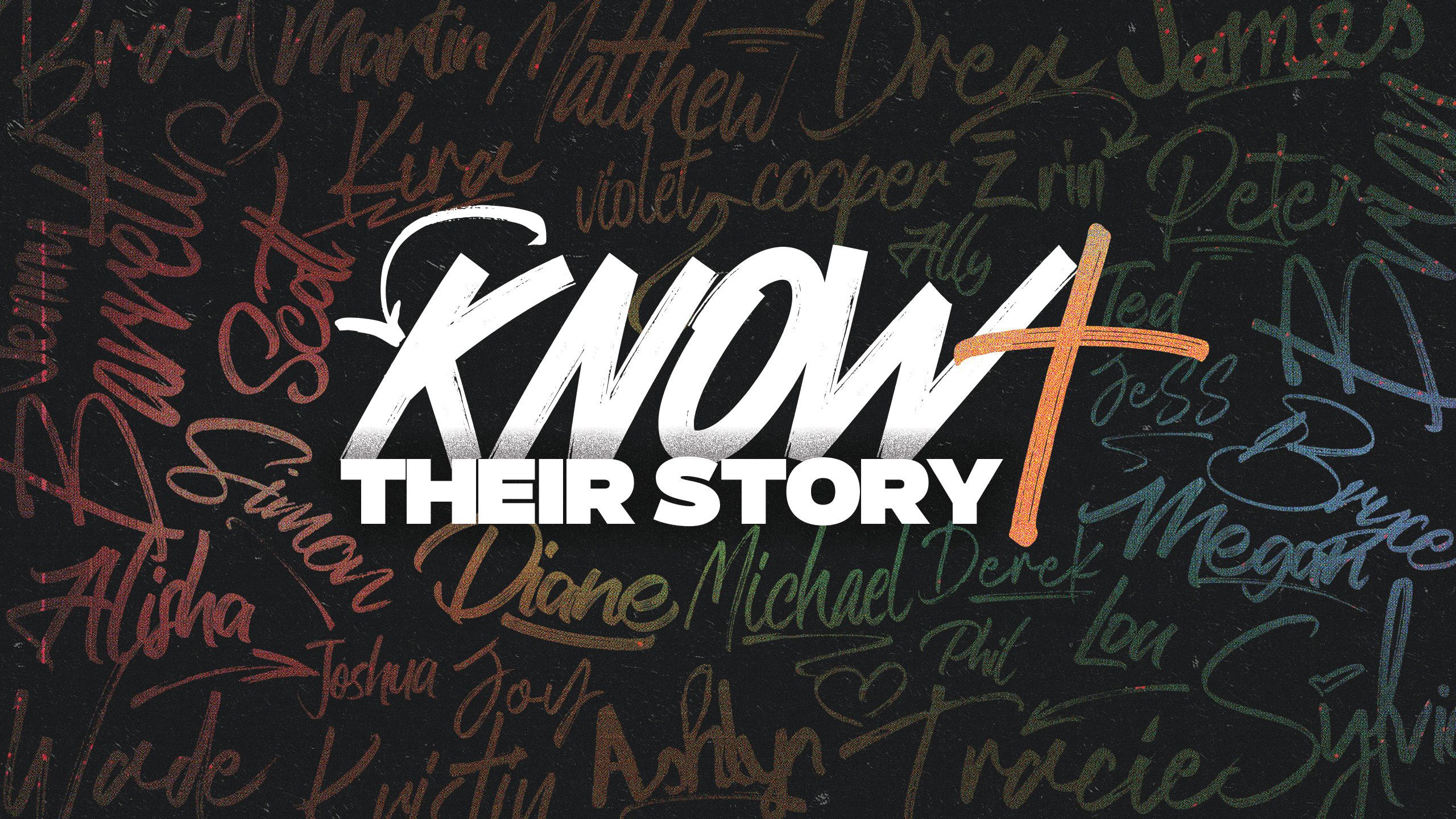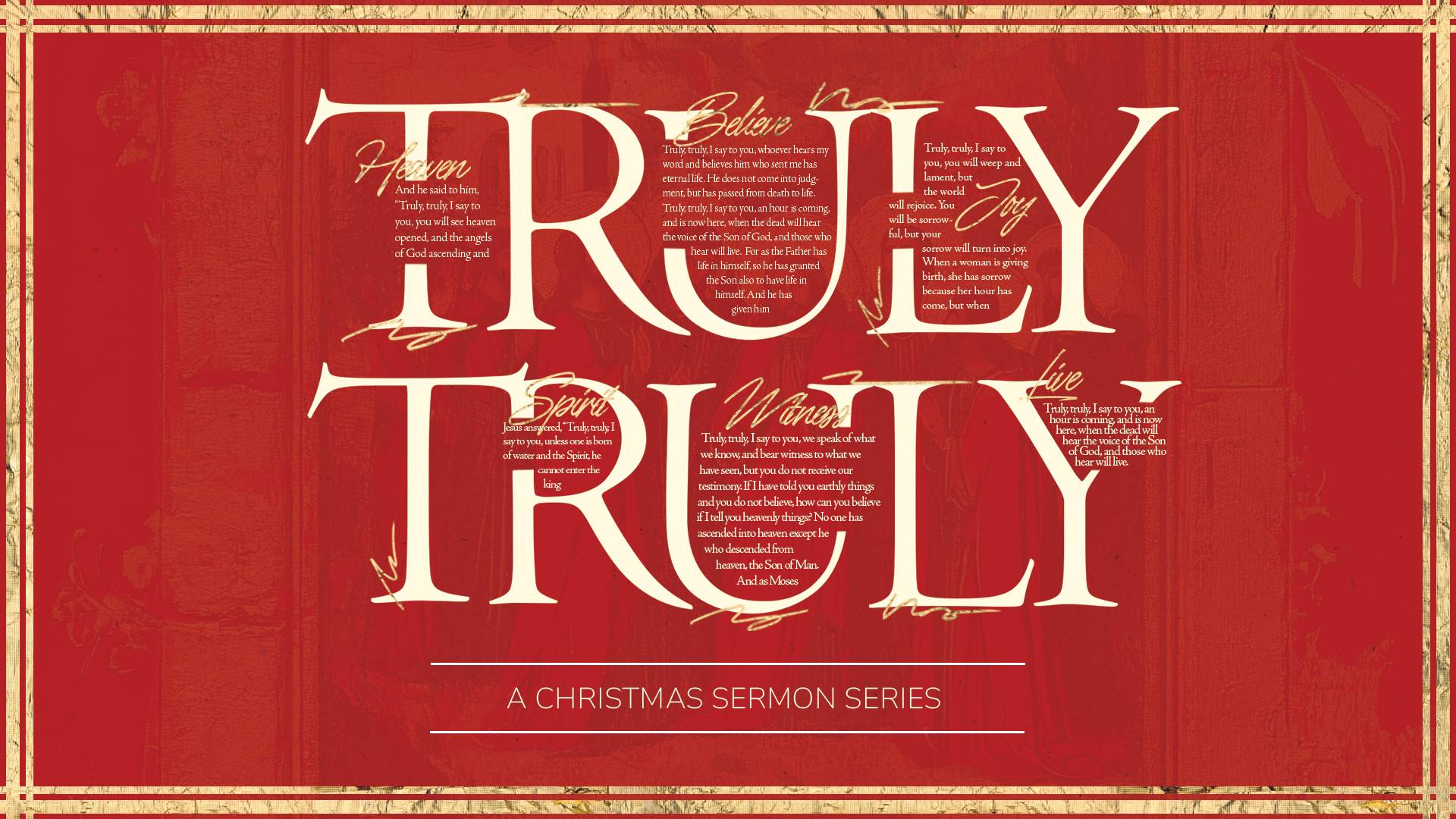In This Series
Make Way for the King
Zechariah 9-10 (ESV)
November 7, 2021
Pastor Josh Beakley
Turn to the book of Zechariah, chapter 9. We’re going to turn to God’s Word. We’ve sung Jesus’ praise and we’re going to listen to His Word together from the book of Zechariah, chapter 9. We’re going through chapters 9 and 10. I’m going to read chapter 9. The reality is that this is sort of like a big steak. As much as I want to be able to cut it up into enough pieces that we could digest it all this morning, we’re just not going to be able to make it through it all. I know the first thing you want in the morning is a big steak. It’ll be good. I’ve cut up a few pieces, but there are definitely some that aren’t fully cut up yet, and you’re going to have to start to work through and digest it on your own, but we’ll get the flavor. So let’s start with chapter 9 and we’ll see what we can get through in the message.
1 The oracle of the word of the LORD is against the land of Hadrach and Damascus is its resting place. For the LORD has an eye on mankind and on all the tribes of Israel, 2 and on Hamath also, which borders on it, Tyre and Sidon, though they are very wise. 3 Tyre has built herself a rampart and heaped up silver like dust, and fine gold like the mud of the streets. 4 But behold, the Lord will strip her of her possessions and strike down her power on the sea, and she shall be devoured by fire.
5 Ashkelon shall see it, and be afraid; Gaza too, and shall writhe in anguish; Ekron also, because its hopes are confounded. The king shall perish from Gaza; Ashkelon shall be uninhabited; 6 a mixed people shall dwell in Ashdod, and I will cut off the pride of Philistia. 7 I will take away its blood from its mouth, and its abominations from between its teeth; it too shall be a remnant for our God; it shall be like a clan in Judah, and Ekron shall be like the Jebusites. 8 Then I will encamp at my house as a guard, so that none shall march to and fro; no oppressor shall again march over them, for now I see with my own eyes.
9 Rejoice greatly, O daughter of Zion! Shout aloud, O daughter of Jerusalem! Behold, your king is coming to you; righteous and having salvation is he, humble and mounted on a donkey, on a colt, on the foal of a donkey. 10 I will cut off the chariot from Ephraim and the war horse from Jerusalem; and the battle bow shall be cut off, and he shall speak peace to the nations; his rule shall be from sea to sea, and from the River to the ends of the earth.
Just a few weeks ago, in October, a royal welcome was given. It was around 10:00 in the morning. Honor was shown in the form of a horse and a carriage which made its way down the Blackpool promenade, flanked by royal guards and then heralded by the Yorkshire military band playing a rendition of the national anthem. This procession arrived at what was to be a new permanent residence. It was clear to all that this was no ordinary welcome. One noted local said they never experienced such a dramatic entrance. But if such an extravaganza was to happen for anyone, of course it had to be for her majesty. But this was not your typical arrival of Queen Elizabeth, perhaps the most well-known monarch here, because this was the arrival of a figure designed to look like her, all made out of wax. To be sure, it was a very realistic figure. In fact, I think it was the 24th figure of its kind to be made in her likeness, since she was 2 years old, back in 1928. It takes a team of 25 artists to make one wax figure, about 800 hours collectively. It took 30 hours just to make the teeth. All of this pomp, ceremony and honor was all for a figure made of wax.
Throughout history, people have loved to show honor to royalty almost as much as royal figures have enjoyed receiving that honor. From monarchs to athletes, many have enjoyed the fanfare of royal celebrations and welcome. I think it’s because deep down, we long for someone to be worthy of that kind of honor. We long for a leader or a ruler or a deliverer who truly merits that kind of praise because they can actually rescue us from all the evil and the tragedy of this world and usher in a kind of time of fresh peace and happiness. In the short term, there are athletes who deliver victories over rival teams. There are politicians who deliver reform over broken policies. There are heroes who deliver victims from oppressors at the individual level and even at times at a national level. But even then, such leaders eventually fail to meet the expectations of all the hype that they’re given and they don’t last. But it hasn’t stopped us from looking and from waiting, from longing for a leader who can one day truly deliver and merit the honor and celebration we are so eager to give.
This is exactly the kind of leader that Israel was awaiting. After generations in exile, a small remnant has returned to the land. Jerusalem and the temple are now partially rebuilt. This is in history. Real people had been there. Zechariah, a real young man, received a vision one night with all of these prophecies of what was going to happen. As they’re in this moment, there is the slenderest thread of hope. This promise of peace and blessing and land possession up to the Euphrates that had been made by God to Abraham back in Genesis 15 was issued again to Israel in Exodus 23 and 24. It was reiterated to David and again in Psalm 72, it was repeated at the end of his prayers there. It is described beautifully in Zechariah chapter 8. We saw that vision of what it would look like, yet it remains incomplete because Israel needs a king. That’s exactly what they have been promised over and over through prophet after prophet. They’ve been promised a king from the line of Judah, from the line of David and Solomon, specially anointed by Yahweh, called the Messiah. The Hebrew word is Meshiac, or Anointed one. The Greek word is Christos, the chosen one. To prepare for His arrival, Israel has been reminded of their need to repent and live rightly. We saw what that kind of life is to look like.
Zechariah had these visions of hope given in that single night in chapters 1-6 about the angels of God at work in the world in invisible ways. They’re hoping. A couple years go by. They’re moving in the temple. They think. “Is it time to look forward? Are we ready yet?” They ask about the fasts. They get a strong response. We heard last time that we need to still return and repent and God will keep His promise. But here we are. We’re kind of contrasting this beautiful picture of chapter 8 with the cold, hard reality of the oppressive Gentile kingdoms still pretty much at their own leisure.
People must have been wondering how such a vision would ever be accomplished. So in response, Yahweh sends these two messages at the end of the book. These are two burdens or oracles which relate to worldwide prophecy. First, in chapters 9-11, it deals primarily with the Gentiles. Then second we see the emphasis on the deliverance of the Jews. This morning, we’re going to cover most of the first oracle or burden that is placed upon Zechariah that he brings to the people. This is a heavy word. How is it that God’s going to really shake things up?
Now, the style of this message that Zechariah preaches here in chapter 9 is so unique that a lot of scholars actually question whether or not Zechariah was the one who wrote this. There are other reasons as well that we’ll touch on. But most of them come with a closed mind, thinking prophecy is not actually possible. So the literary style is as good a reason as any to say this wasn’t the same prophet. But you ignore who Zechariah is and what he was trying to communicate and how God works if you don’t understand the uniqueness of the content and intent of these chapters.
Imagine if you have a phone and you’re looking through the photos and scrolling through those photos, you look and you kind of see some pictures of kids, maybe a few homework assignments or some kind of work thing or a thing in a store. Then all of a sudden, you see panorama beautiful pictures of the Grand Canyon. You might think this must be someone else’s phone now. Well, no. There was a certain sequence of things going on and all of a sudden, based on the perspective that they had in the moment, here is something unique that they captured. Here, we’re hearing Zechariah speak, but all of a sudden, there is a very unique high-level panorama beautiful prophecy of what is going on in the world. It’s a mountaintop panorama that is sort of a jarring contrast with what came before. But that’s what is going on here. Sort of at the end of the Old Testament, there is this mountaintop perspective of the future. Just like Moses, when he went up on the mountain at the end of the Pentateuch looked ahead, God said, “Here’s what is ahead.” Here at the end, we’re looking ahead. Here’s what is ahead.
A big question is, is he speaking in prophecy? Is this history? Is this allegory? What’s going on? Or is it some combination of those three. That’s where it gets very difficult to interpret, but all three can be effective tools to encourage the people of the day and those who would come after, like us. But how they work together is challenged especially because of the prophetic nature.
We talked about the telescope lens. You’re looking through a telescope at mountain ranges of time. You see mountains that seem stacked on top of each other, but even though they seem right next to each other with verse after verse, in between there can be a valley of thousands of miles or years, as it were. There are gaps. So you’re trying to make the most of what you can, but it is tricky. We need to read it in light of everything else we know of God’s Word.
Do you remember those 3D glasses we used to wear? The red and the blue ones? You put them on and you look at something and it would kind of make something appear as if it was coming out in another dimension, a third dimension. If you looked through only one, it just kind of looked weird and you couldn’t see. But if you looked through both, you got this illusion, this sense of being able to see another dimension. I think kind of what seems to happen sometimes in prophecy is that God uses this manner of giving a prophetic word, where when you read it He gives often a near-term fulfillment of that word. So God gives some perspective of movement and affirmation that this is going to happen, yet it doesn’t fully fulfill the word because it will one day come in completion later on. So if you were to look through just one, it doesn’t really make sense. But if you start to look through both, you understand how God is trying to give you a view into a dimension that we can’t see outside time, of the future.
Now, if that doesn’t make sense to you, well, I’m sure that the rest of the chapter is quite confusing as well. But as you start to get into it, you realize something unique is going on here. It’s something that is sort of both and, near and far, already and not yet. There is something and it’s complex, but it’s designed to operate almost like a surround sound that gives you a sense of what’s going on in a way that you might not ordinarily see. As you consider that uniqueness, let’s enter into the chapter.
In chapter 8, Israel has this beautiful vision of the hope that is clearly ahead. We’re waiting for this hope. We just need this new king, the one who is going to make things right. That’s going to require a serious amount of conquering of foreign nations. Darius is in rule, here. How is this going to come about? We want hope. We need hope. We’ve been given hope. A new kingdom is coming, but where is the king who will bring this about, the one we so desperately crave?
Here’s the thing when it comes to kings. It’s worth waiting for the right one. There were many prophecies given. They needed a king. There were many kings that would rise and fall. At the end of the day, it is worth waiting for the right one. The question is who is this right one? Who is this king? In waiting for him, how do we prepare and ready ourselves for his arrival? How do we honor this king, the right king, the true king? What will he look like? How will we know when and how to honor Him? Here are some things to look for and how we’re to honor this king that comes from God.
Honor Who He Is Against: Await His Justice (9:1-8)
You see this in verses 1 through 8. He is very clear about His desire for justice or for what is right and the fact that He is against what is wrong. He will make what is wrong, right. Those who are engaged in evil and sin will be judged and those suffering due to that evil will be delivered. This is a delivering, a protective justice. He is against oppression and evil. The sin that brings about such suffering is no small matter.
I started to look through examples of sin and oppression in the world and I thought I might share some, but I really actually don’t want to. Some of it is so dark that I don’t think I need to actually review. Think about your own life. Think about our community. Think about what is going on in the world. You think about other nations not only of our generation, but of generations past. There is such deep evil and suffering because of oppression on nationwide levels, across continents, in cities, in homes. There is evil! The true king is against that evil. He is against oppression. He promises justice that will deliver. Sometimes we like to imagine that there isn’t a world of evil because we don’t know what to do with it. So we pretend like everything is okay. We read things about God’s justice and it kind of feels out of place. We don’t like it. We recoil. But it’s because sometimes we lack a real sense of evil around us and the fact that God is against that. He’s written His Word to give a voice to all of life’s experience, including suffering under oppression. We see how serious His justice is that’s required to deliver the oppressed.
The Jews of Zechariah’s day, the Israelites would have known what oppression truly looked like. They would have known the smell of death, the sense of hunger. They would have known what it looked like to see piles of bodies. They would have known true oppression, injustice, suffering. Now, here is Zechariah. They’re looking at this beautiful picture of chapter 8, thinking how is this going to come to pass? Zechariah brings a burden from God, a heavy word of God that is the same word used at the beginning of Malachi. This heavy word would have given voice to their desire for justice and deliverance of what they had suffered. God often carries out His sovereign plan to deliver through human instruments. Human leaders can be used by the kingdom of darkness for great evil, but also by God to bring justice to those in need.
We see a swift activation of His justice in verses 1-8 from the oppressing Gentiles. We learn a little bit about who and what God is against. You see the sinful oppressors that His justice opposes. He is against oppression.
1 The oracle of the word of the LORD is against the land of Hadrach and Damascus is its resting place.
The land of Hadrach is kind of a hard term. We’re not quite sure there. Some scholars think that it’s a combination of two words that are sharp and soft in Hebrew, that kind of is like a code word for the Medo-Persia kingdom. Others think that it might be a city that is in the far north. Either way, it’s this sense of and indication of a Gentile nation that is ruling and it is oppressing in a way that God does not like, and coming from the north. So if you were to take that this is that far north city, then you would come just south of that and you would see Damascus that God is against. His word sort of is weighing against this Gentile oppression and it comes to rest there in Damascus, which is an influential capital there of around modern-day Syria. Here is God’s Word coming against them. The reason why is because He is a God who sees.
For the LORD has an eye on mankind and on all the tribes of Israel,
He sees what is going on in Israel and what’s going on all around. Just like when the angel sent out the patrol all around them. He sees what is going on. He has very clear awareness. You can see what is visible to God, the affairs of His people, Israel and of the Gentiles. He sees all. He sees the silent suffering of the oppressed, of Israel here, as well as the smug sin of the oppressors. He is not blind to their suffering nor to the smug sin of those who are oppressing them. He lists a number of cities that line the Phoenician coast, each representing sort of this power center of oppression and injustice that is coming from the evil enemies of God’s people. This heavy word of judgment begins in the north and just works its way down the coast. So here is God’s heavy word of judgment. So you see work to Damascus and nearby.
2 and on Hamath also, which borders on it, Tyre and Sidon,
These are two well-known cities opposed to Israel. One time, Solomon had gone into a treaty with King Hiram, the king of Tyre. They had sort of a great skill with being on the sea because they’re right there on the coast. They had a skill with building. Then later on, King Ahab, if you remember him, he married the daughter of the king of Sidon who was a dark worshiper of the false rain-god Baal. So here, he emphasizes these cities, Tyre and Sidon.
These cities don’t mean as much to us, but the way that he is using them is sort of like the way that we use some titles of cities. If you heard someone say, “Washington did such and such,” or if they were to say, “Washington fell,” that would be very significant because that city represents a nation. It represents a political structure. Or if someone were to say, “Hollywood did such and such,” it sort of represents a whole system of what’s going on. Tyre and Sidon, Tyre in particular, sort of represents this system of evil, this opposition to God. Tyre was a city that used to be on the mainline coast and actually it was then rebuilt on an island about half a mile off that coast. They built this strong structure. It was a sort of a double wall that was said to be 150 feet high. They had great sea captains and they were pretty much indestructible, Tyre was. Their pride and evil was so great and it was described in a lot of places.
In fact, if you look at Ezekiel 26-28, that emphasis is you’re going to be destroyed. God speaks against them. But if you’re an Israelite sitting here, you would think I have this beautiful picture of Jerusalem and then Tyre over there is a place that you can’t even attack it. It’s on an island. In fact, Assyria went and tried to conquer it and I think it was five years, and couldn’t do it. It was a late siege, but they couldn’t do it. Babylon, the Babylonians tried, I think it was 13 years, and couldn’t do it. They were just indestructible. Darius wouldn’t have been able to conquer them. So here is Tyre and they stand strong and smug in their stand against God. They consider themselves as
though they are very wise. 3 Tyre has built herself a rampart and heaped up silver like dust, and fine gold like the mud of the streets.
So they’re self-serving in their proficiency. They think they’re wise. They think they’re cunning and they can outsmart God. They’re self-serving in their security. They built this rampart and they think that they can’t be attacked by God. And you see they are self-serving in their prosperity. They have
heaped up silver like dust, and fine gold like the mud of the streets.
It’s like you sweep your house and it’s just dust, but that’s gold. Or you sweep the city streets and it’s like silver or gold. This is what you call filthy rich. You just can’t even get rid of all of it, there is so much wealth. But it’s kind of a dark picture. The word there of heaped up silver is the word that was used in Exodus of piles of stinky dead frogs that they would heap up. It’s like you have all this wealth and you’re filthy rich. Sitting there you think you’re all safe. You think you’ve outsmarted God. The smug sin of this evil city, God sees it all. In fact, it’s become a towering symbol of sinful oppression and defiance not only of man, but ultimately of the kingdom of darkness, of Satan. Listen to Ezekiel chapter 28. When Ezekiel prophesied, he was told to
Ezekiel 28:2 “Son of man, say to the prince of Tyre, Thus says the Lord GOD: “Because your heart is proud, and you have said, ‘I am a god,’ I sit in the seat of the gods, in the heart of the seas’, yet you are but a man and no god, though you make your heart like the heart of a god—
Ezekiel 28:6-8 therefore thus says the Lord GOD: Because you make your heart like the heart of a god, therefore, behold, I will bring foreigners upon you, the most ruthless of the nations; and they shall draw their swords against the beauty of your wisdom and defile your splendor. They shall thrust you down into the pit, and you shall die the death of the slain in the heart of the seas.
Ezekiel 28:10-13 You shall die the death of the uncircumcised by the hand of foreigners; for I have spoken, declares the Lord GOD.” Moreover, the word of the LORD came to me: “Son of man, raise a lamentation over the king of Tyre, and say to him, Thus says the Lord GOD: “You were the signet of perfection, full of wisdom and perfect in beauty. You were in Eden, the garden of God; every precious stone was your covering,
Then he lists some stones and he says
Ezekiel 28:13-15 …On the day that you were created they were prepared. You were an anointed guardian cherub. I placed you; you were on the holy mountain of God; in the midst of the stones of fire you walked. You were blameless in your ways…
Ezekiel 28:17 Your heart was proud because of your beauty; you corrupted your wisdom for the sake of your splendor. I cast you to the ground;
Do you see what’s going on there? God is speaking against Tyre, but it’s almost as if He is speaking both to the human king and what’s going on there in the kingdom, but also a representative of Satan and his opposition to God and the oppression and darkness and evil that he brings. There is a smugness that God recognizes, represented by Tyre, and they will face justice. They think they’re cunning enough to outsmart God’s justice, secure enough to withstand it, wealthy enough to outlast it. That is Tyre. They have forgotten that
Proverbs 11:4 Riches do not profit in the day of wrath,
God is clear. Judgment is coming. He sees the silent suffering of the oppressed and he sees the smug sin of the oppressors. Zechariah is saying God’s Word rules beyond the borders beyond this current kingdom and the past kingdom. It’s going to weigh heavily and come against them and it’s going to roll and cascade down the coast. You see sort of the steamrolling effect.
4 But behold, the Lord
Here is Yahweh Adonai. This is the God who is sort of the sovereign God who works victory. You see Him bring declarations of judgment. He
will strip her of her possessions
Their stuff is going to be taken and then their power is going to be undone.
and strike down her power on the sea, and she shall be devoured by fire.
Their hearts are going to melt with fear. Their plans are going to be thwarted. Then their leader is going to die
5 Ashkelon shall see it, and be afraid; Gaza too, and shall writhe in anguish; Ekron also, because its hopes are confounded. The king shall perish from Gaza; Ashkelon shall be uninhabited;
Their land is going to be emptied. Their solidarity is going to be destabilized.
6 a mixed people shall dwell in Ashdod,
Their arrogance will be humbled.
and I will cut off the pride of Philistia.
Their violence will end. In fact, they had worshiped the Philistines with this sort of abominable worship of offering sacrifices to things that shouldn’t be offered.
7 I will take away its blood from its mouth, and its abominations from between its teeth;
He gives this picture of these people who have blood in their mouth and even stuck in their teeth, these bits of meat. It’s disgusting! This justice is cascading down. Yet, their rebellion is going to vanish. Do you see what’s going on in verse 7?
it too shall be a remnant for our God;
He’s going to take out that abominable sacrifice, clean out their teeth, and there is going to be some who are actually going to come to the Lord.
it shall be like a clan in Judah, and Ekron shall be like the Jebusites.
The Jebusites were the people who were over Jerusalem before David came. David came and conquered and the Jebusites were there. He didn’t wipe them all out. In fact, some of them were sort of absorbed into Israel and had some significant relationships, including at the end of 2 Samuel, where David came to the threshing floor of Araunah, the Jebusite. They had become a part of the people. They were absorbed. No longer could they threaten. There were those who had turned from their evil and they had joined in with the hope of God, who brings justice.
We see where this all leads and the firm protection that His justice guarantees. God wants what is right. He sees all and He alone can make safe. If you’re in Israel and you’re in Jerusalem and you hear judgment coming from the north as it often did and it’s rolling its way down these cities and it’s a Gentile ruler who is conquering, which city comes next? Jerusalem. So you’re expecting, “Oh no. Here it comes again.” Yet, here is the protection God provides in His justice. It’s a settled protection. After the campaign, God says
8 Then I will encamp at my house as a guard,
Don’t worry. I’m going to take up safety and rest and peace here, just like the judgment in Noah’s day of the flood, when it comes sweeping through. When God promised a house to David in his day, God is going to come and He’s going to take up residence in a protective way. That same angel who is on the horse in the beginning of Zechariah in the vision, it connects to the end of that vision, when all the chariots patrol the north and they prepare the way for Israel to establish a ruler who is going to be that shocking priest-king in the temple of Jerusalem, protecting. It’s decisively settled and absolutely safe. He says
so that none shall march to and fro;
There will be no bad guys going back and forth. Just like in Zechariah 7:14 where there were no good guys being able to go in commerce because it wasn’t safe, now the bad guys won’t be patrolling the way they’re gone. It’s safe. He says
no oppressor shall again march over them, for now I see with my own eyes.
This is going to be personally ensured. The word “oppressor” there is used several times, but probably most piercingly in Exodus 3 when God says
Exodus 3:7-8 Then the LORD said, “I have surely seen the affliction of my people who are in Egypt and have heard their cry because of their taskmasters. I know their sufferings, and I have [seen it].
Here, they would have been oppressed and they would have heard this promise from Zechariah and recognized the same God that saw us in our oppression in Exodus, sees our oppression in exile, and He still will keep His promise to deliver. One day, He’s going to come and He’s going to bring safety and it’s going to be settled and it’s going to be absolute and it’s going to be ensured personally. God is against sinful oppression and He will bring justice. It is right to await His justice and honor who and what He is against, to make way for the king in our own lives and to see the need for justice and cry for Him to bring it about in His time. As Jesus would say, “pray, your kingdom come, your will be done on earth as it is in heaven.” We know evil cannot win.
Does the world hear from us, do our spouses, do our friends, do our coworkers, do our children hear from us that evil cannot win? God is against it and He will prevail. We are waiting for the justice. We long for it, but it is only a matter of time. It is so sure that we can consider it settled. We can pray prayers and sing songs like
Psalm 121:1-2 I lift up my eyes to the hills. From where does my help come? My help comes from the LORD, who made heaven and earth.
It says He is your keeper.
Psalm 121:7-8 The LORD will keep you from all evil; he will keep your life. The LORD will keep your going out and your coming in from this time forth and forevermore.
The writer of Hebrews, writing to a people in persecution, facing the struggle of life, he said
Hebrews 13:5 Keep your life free from love of money,
Think of Tyre and their self-reliance.
Hebrews 13:5-6 and be content with what you have, for he has said, “I will never leave you nor forsake you.” So we can confidently say, “The Lord is my helper; I will not fear; what can man do to me?”
You see the confidence of that faith that he is the king. He will bring justice. He is my helper. Evil cannot win. God is against oppression and He will bring justice in His time. We need to side with Him. We don’t trust ourselves. He will bring ultimate justice one day, but He often sends small amounts of it to help us see what’s going on.
Now, here’s where you put on those 3D glasses. We think about that ultimate fulfillment, yes, but was there any near fulfillment that would have helped them see what was going on? You think about Darius and he was there, the Persian king. Were there any rulers who actually had a confrontation later on? Were there any rulers who would come from the north and work their way down the Phoenician coast exactly like this? You can go and take a look at the history books, but it’s a pretty powerful image of Alexander the Great conquering, marching his way down, conquering Tyre, that couldn’t be conquered in 5 years or 13 years. He conquered it in 7 months. You can go read about or even watch about how he built a built a land mass out and conquered Tyre.
God brought justice even then, but we know that it wasn’t completely fulfilled. There is something that we’re still waiting for and there is something actually very interesting going on that is set up for us right there at the beginning of verse 9. You consider that image of Alexander the Great conquering and riding and destroying. He brought truth to these claims. But right there, we see the great king who is conquering and it’s going to be contrasted with the way that God chooses for His king to appear. Consider how we honor not only what He is against, but
Honor How He Chooses To Appear: Celebrate His Appearance (9:9-17)
If we’re going to ready ourselves for the arrival of the true king, we need to honor how He chooses to appear and celebrate His appearance. This is how He shows up. Look at His entrance.
Boxers like to make a big entrance into the ring. Kings like those royal welcomes. It was some time ago, we were explaining sports to our kids. You know how they do those big intros and welcome people. We were trying to explain to our kids, so we played some intro music in our house. I think it was Eye of the Tiger. We played it and then we kind of flickered the lights on and off and did a little bit of an intro. “Alright, at 2 foot…” (Laughter!) We introduced the kids and they loved it! For a couple of weeks, they would try to make entrances of their own. They would flicker the lights on and then our three year old would hide and she would start to hum and then she’d come out saying, “Introducing, Jules Beakley.” She loved the big entrance. We love the big entrance. We see it all over sports arenas, whatever it is. Alexander the Great made a big entrance and a big impact. There is a major contrast with the King of God. When you think of the Messiah King, how He comes, look at how He appears. First for sure, we rejoice. This is what we do when He appears.
9 Rejoice greatly, O daughter of Zion! Shout aloud, O daughter of Jerusalem!
We cheer! We’re going crazy because of who has arrived to bring salvation. This is what the appearance should provoke, but look at who it is that appears.
Behold, your king is coming to you; righteous and having salvation is he,
So it’s a king. He’s arriving. He’s approaching. We’re celebrating. We’re rejoicing. He’s a king who we can trust. He’s the king and that’s the royal role that He holds, but we can trust His moral character. He is righteous. He is a king who is trustworthy, unlike so many others. You see the mission He is on. He is having salvation. He is the rescuer we’ve been waiting for. He brings salvation. He’s the chosen one, a righteous, saving king. We can trust Him. But look at the mysterious imagery that characterizes His appearance. What we’re told about this king is that He is
humble and mounted on a donkey, on a colt, on the foal of a donkey.
He’s humble and meek. This is not entirely new imagery. In fact, if you go back, at one of the first hints of the Messiah spoken to Judah from the prophecy of his father, Jacob, that there is going to come one, this Messiah and he says
Genesis 49:10-11 The scepter shall not depart from Judah, nor the ruler’s staff from between his feet, until tribute comes to him; and to him shall be the obedience of the peoples. Binding his foal to the vine and his donkey’s colt to the choice vine, he has washed his garments in wine and his vesture in the blood of grapes.
There is this image of one from Judah who has a donkey. It’s almost like in verses 1-8 we see this conquering hero riding on the horse and it’s like, I think it’s Alexander the Great. Then the silhouette begins to sort of shrink down and then you see, no, that’s not a horse. That’s not Alexander. It’s sort of a humble, lowly figure on a donkey. Who is this? You see those 3D glasses helping to draw out what God is wanting to make clear for you.
The kind of king that He is sending is different than we would have expected. Here is the Messiah not in a grand entrance, but coming in humbly, lowly. It’s the picture and passage that the Jews of Jesus’ day pick up so clearly and say this prophecy was fulfilled as Jesus came and did His ministry. As He enters Jerusalem, He tells His disciples to go down the road. You can read about it in Matthew 21 and John 12. Jesus is not like Alexander the Great. He says, “Go down there. There is a donkey and even a little colt. You can untie both of them and bring them here.” He rides in and the people recognize this is your king coming to you. They’re celebrating, but they don’t quite understand the contrast. They’re grabbing hold of this prophecy. They think they know what is happening, but they’re missing the valley between the mountains of what is about to take place. They don’t realize Jesus is unlike any human king the way that we perceive.
He’s the one who came not to be served, but to serve and to give His life as a ransom for many. That valley between the mountains, the salvation that they needed so desperately wasn’t just deliverance from Babylon or from Assyria or eventually from Rome. It was from their own sin, and He was going to deliver them from their sin. Jesus kept confronting His disciples and saying, “Didn’t you see it was necessary for me to be sacrificed, for the Christ to be sacrificed, for the Christ to suffer, to die?” He came to offer Himself in our place.
In Isaiah 53 there is a great prophecy that shows the fulfillment of how the Messiah would come and would offer Himself and deliver. In Matthew 27, we see Jesus confronted.
Matthew 27:11 Now Jesus stood before the governor, and the governor asked him, “Are you the King of the Jews?” Jesus said, “You have said so.”
Pilate, now He is starting to come in confrontation with Rome and He’s not fighting against Rome. Pilate is shocked! He comes out and says, “This guy didn’t even do anything wrong. Do you want this one, Jesus who is called the Christ?” He couldn’t be more clear. “This is the Messiah, the one who is supposed to be your king.” In fact, he had a wife who had a nightmare and said, “Have nothing to do with that righteous man. Don’t do anything with him.” He doesn’t know what to do. He comes out and says, “Do you guys want this king? Do you want the Christ?” They say, “No, we want Barabbas, the murderer, instead. We don’t want Him. Away with Him. Crucify Him.” Pilate says, “I’m innocent of this man’s blood,” washes his hands, and they say, “His blood be on us and on our children.”
John 19:15 They cried out, “Away with him, away with him, crucify him!” Pilate said to them, “Shall I crucify your King?” The chief priests answered, “We have no king but Caesar.”
They didn’t want this king. They wanted something else. They wanted deliverance, but without the salvation that they so desperately needed. They wanted a human version. They didn’t see their need to be delivered from God’s judgment. Here is how the king appears. We honor how He chooses to appear. It’s scandalous to us, recognizing it’s our sin and that He is saving us from the judgment we deserve from God. He is rescuing us not only from the kingdom of oppression here, but from our own sin. But we need to go to Him. We need to trust in what He offers and trust Him to be the true king. He is the one who offers Himself and rescues in such a way. But He rises again and that is where we start to see the rest of the passage and the chapter ahead unfold. He will bring the true rescue and deliverance. He will bring that one day. But in this season, in this time, it’s very clear that the way He appears is not the way we expected, but it is exactly the way God designed.
Now, the way He’s going to deliver, as you start to read the chapter, He is going to deliver using His people like a battle bow. He talks about Ephraim and He talks about Israel almost like they’re a bow and arrow that you step on and start to stretch. He’s going to wield them like a sword. He’s going to bring peace. He says in verse 10,
his rule shall be from sea to sea, and from the River to the ends of the earth.
The idea of the river is the River Euphrates. In each of the covenants that God has mentioned, there is a promise that there will be a rule to the river. He mentions the covenant in verse 11.
11 As for you also, because of the blood of my covenant with you,
There is going to be a rule. If you want to read something interesting, go read in Psalm 72 where the king comes and He brings justice to those who are oppressed and He delivers.
Psalm 72:6-8 May he be like rain that falls on the mown grass, like showers that water the earth! In his days may the righteous flourish, and peace abound, till the moon be no more! May he have dominion from sea to sea, and from the River to the ends of the earth!
Psalm 72 is the last psalm of the book of David, looking forward to this one who would come and bring that true deliverance. He will bring that rescue.
I will set your prisoners free from the waterless pit.
All throughout, you see the imagery of past times of God delivering, whether it’s Joseph or Jeremiah from the waterless pit.
12 Return to your stronghold, O prisoners of hope;
These are prisoners who say, “This isn’t forever. There is a time to get out, a time when we’re going to be released.” They’re the people in Isaiah 26 who are able to sing a song.
Isaiah 26:1–4 In that day this song will be sung in the land of Judah: “We have a strong city; he sets up salvation as walls and bulwarks. Open the gates, that the righteous nation that keeps faith may enter in. You keep him in perfect peace whose mind is stayed on you, because he trusts in you. Trust in the LORD forever, for the LORD GOD is an everlasting rock.
He’s the rock. They run to Him and take refuge in His name. This is God and He is a warrior who delivers His people like a flock. You see His deliverance and the imagery there is beautiful.
Again, this is sort of that steak that we don’t have time to cut up. But this was what the Jews were awaiting; a king that would deliver. But they missed the reality of God’s promise to come. Then you see Jesus describing what would come in the future, which we’ll get to in the next chapter, and eventually when Pastor Ritch does an overview. We will see the future time when Jesus would come and deliver. But at this time, in Matthew 23, He cries out to Jerusalem that they’re not willing to receive Him. So he says your house is left to you desolate and I tell you, you won’t see me again until you say blessed is he who comes in the name of the Lord. That rescue, Psalm 118, Jesus says it’s going to come, but for a mysterious time, we’re waiting still.
If you read the Christmas story, you read Mary’s song, you read Zachariah’s prophecy, you read Simeon in the temple, you see what the apostles expected during Jesus’ time and right after He is ascended. The kingdom is coming. We’re ready for it. Even when you read the end of Revelation, circling back with Daniel, they’re looking forward to a kingdom. Yet, here we’re confronted with the reality of how He appears as an infant, then humble and lowly on a donkey, then executed on a cross, bringing salvation by offering Himself in our place. That is the path that He has chosen. But it’s not the end. We still trust. We still look forward, just as they did in their day, to the ultimate deliverance and peace and justice that He will bring. We celebrate how He appeared. It’s mysterious and beautiful and glorious. This is the good news of Jesus.
Your biggest problem, our biggest problem is our sin and God’s judgment on our sin. He made a way, the righteous God who brings salvation, offering Himself in our place. All you need to do is trust Him. But that’s not the end. He will come again one day to bring judgment and justice. He will make all things right. He will rescue those who are His and who have trusted in Him. But there will be justice. Make no mistake.
Honor What He Plans To Accomplish: Anticipate His Deliverance (10:1-12)
There is a deliverance here. This is what He plans to accomplish in chapter 10. You can look through that. The way that He promises to bring justice is He calls for His people to ask for rain.
1 Ask rain from the LORD in the season of the spring rain,
Think about them in that agricultural day. They’re sitting there. They need the rain. They need food. He asks them to plead to Him for rain. Unlike the god, Baal, who supposedly brings rain, He is the true God who actually brings rain, and He brings the springtime rain, which is the most important latter rains that come.
from the LORD who makes the storm clouds, and he will give them showers of rain, to everyone the vegetation in the field.
You’re going to have exactly what you need. I’m going to provide for my people. Where does God’s concern rest exceedingly heavy and piercing? There are deceptive lies going on.
2 For the household gods utter nonsense, and the diviners see lies; they tell false dreams and give empty consolation. Therefore the people wander like sheep; they are afflicted for lack of a shepherd.
These are His sheep that He loves. Where does His gaze of anger become hot? It is at the shepherds who do not lead the people rightly. It is at the leaders who have failed the people. He cares for His flock.
3 “My anger is hot against the shepherds, and I will punish the leaders; for the LORD of hosts cares for his flock, the house of Judah, and will make them like his majestic steed in battle.
He’s the one who truly cares for His flock. These shepherds, actually the leaders, if you look, I think there might be a footnote that says not only leaders, it says male goats. These were like the goats that they would put with the sheep and would lead them to the slaughter. These are the leaders who have not done rightly for the people. He says, “I am going to care for the flock.” What’s going to come are some powerful images.
4 From him shall come the cornerstone, from him the tent peg, from him the battle bow, from him every ruler—all of them together.
They will come and deliver. The flock will be whistled for around the world
8 “I will whistle for them and gather them in, for I have redeemed them, and they shall be as many as they were before. 9 Though I scattered them among the nations, yet in far countries they shall remember me, and with their children they shall live and return.
The picture is a beautiful one and it’s one worth waiting for. In fact, we sing this song at Christmas, Joy to the world. But it responds more readily to when Jesus comes again.
Joy to the world! The Lord is come;
Let earth receive her King;
Let ev’ry heart prepare Him room,
And heav’n and nature sing,
No more let sins and sorrows grow;
Nor thorns infest the ground;
He comes to make His blessings flow
Far as the curse is found,
He will come and make every wrong right, including all of the false and evil shepherds. He is the Good Shepherd who lays down His life for the sheep. He rescues them with that kind of zeal and love. The picture that comes to my mind is if you’ve ever read the Chronicles of Narnia, there is a land there that it’s always winter and never Christmas. People are waiting for the true king to return and deliver, and he does in the most surprising way. The lion lays down his life as the lamb. He rescues them and then he rises again and then returns in strength to conquer all who oppose and oppress. He’s a picture of the king worth waiting for. The lamb who was slain, yet the lion of Judah, the prophecy to be fulfilled that will one day return to rule and we make way for Him, the king. Even now, if you read Revelation 22, He will come again and bring justice and rule the earth. He says, “Surely, I am coming soon.” To that, we all say Amen. Come Lord Jesus!
Latest Sermon Series
Get the App
Watch the Latest Sermon
Get access to each week's sermon right on your phone. Look up sermons & series.Get the Digital Bulletin
Get the latest updates, events, & family news by checking out the digital bulletin.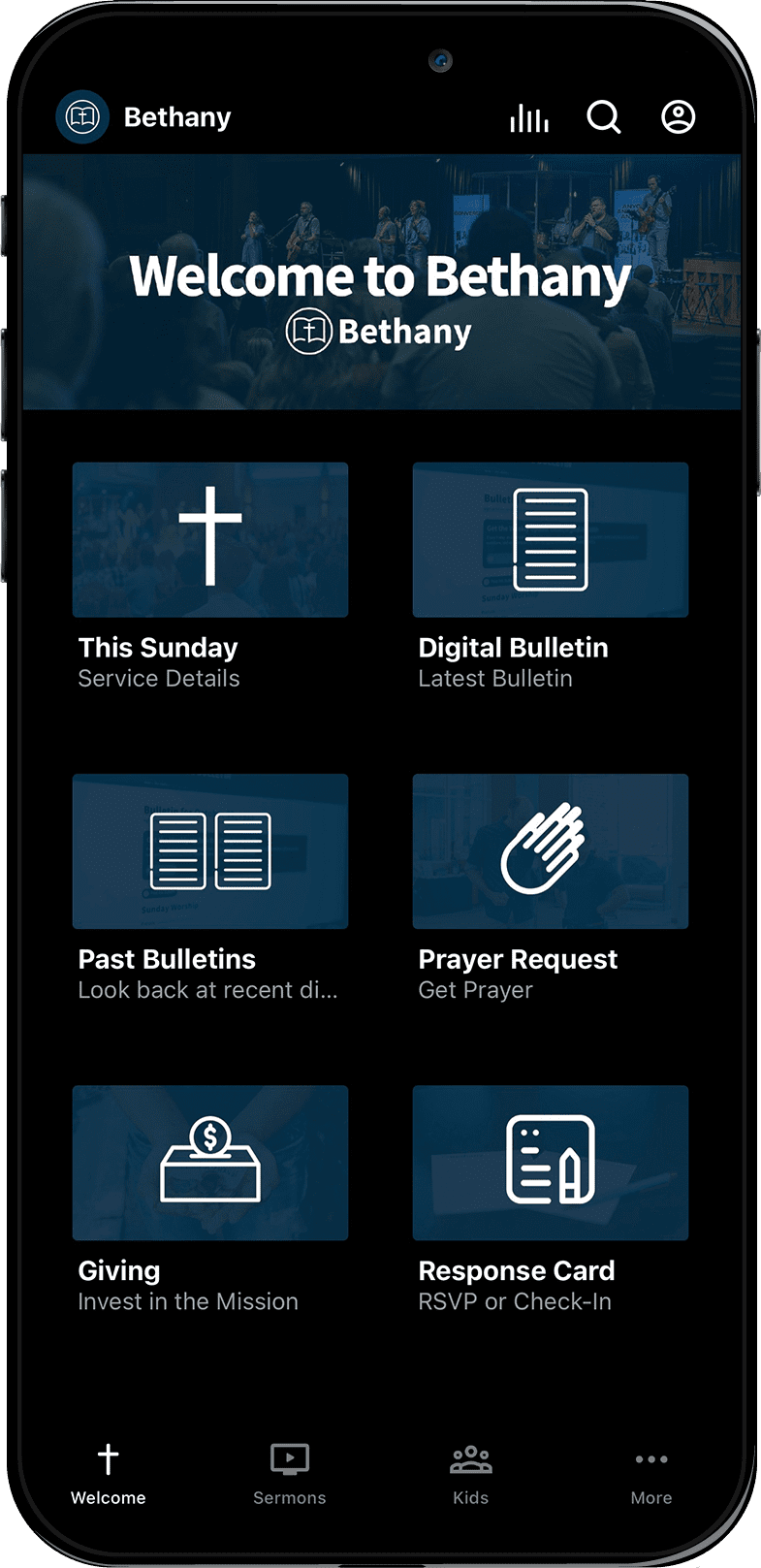
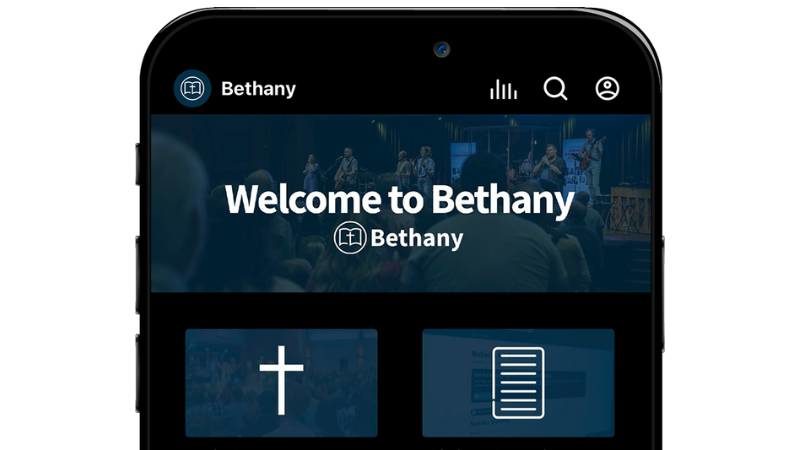
- 1Watch the Latest Sermons
- 2Get the Digital Bulletin
- 3Tell us how to pray for you
- 4Get updates and notifications
